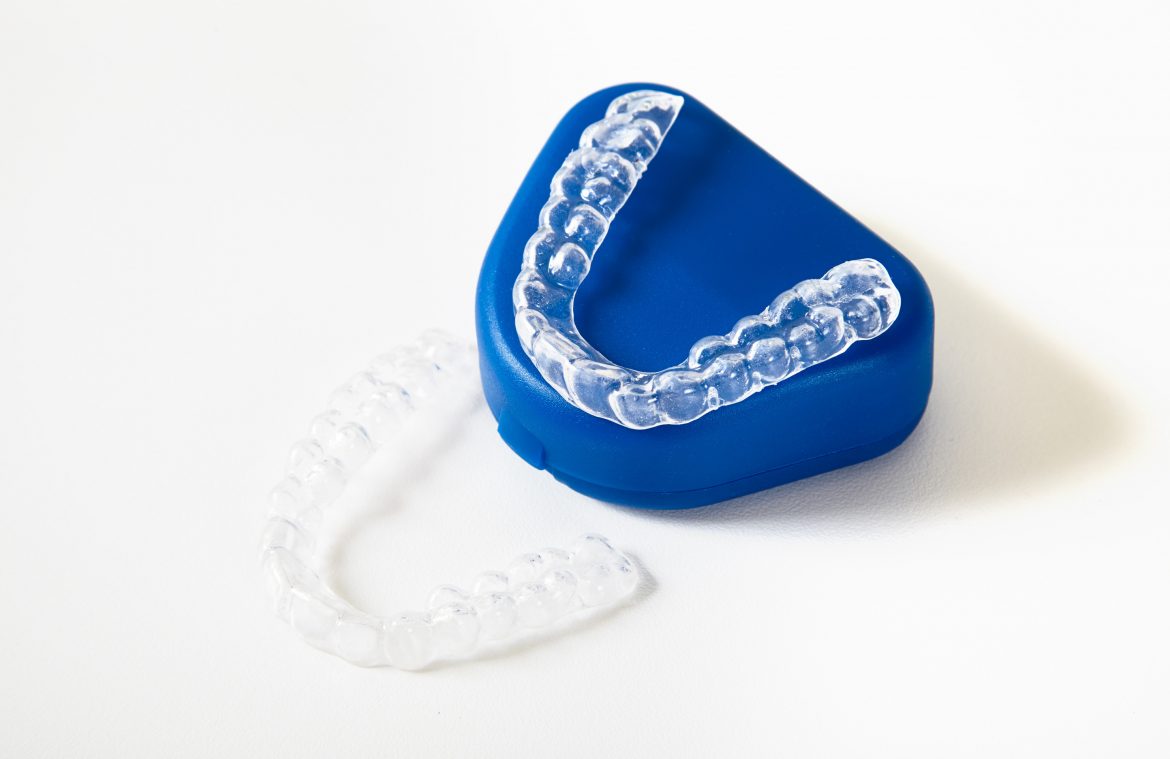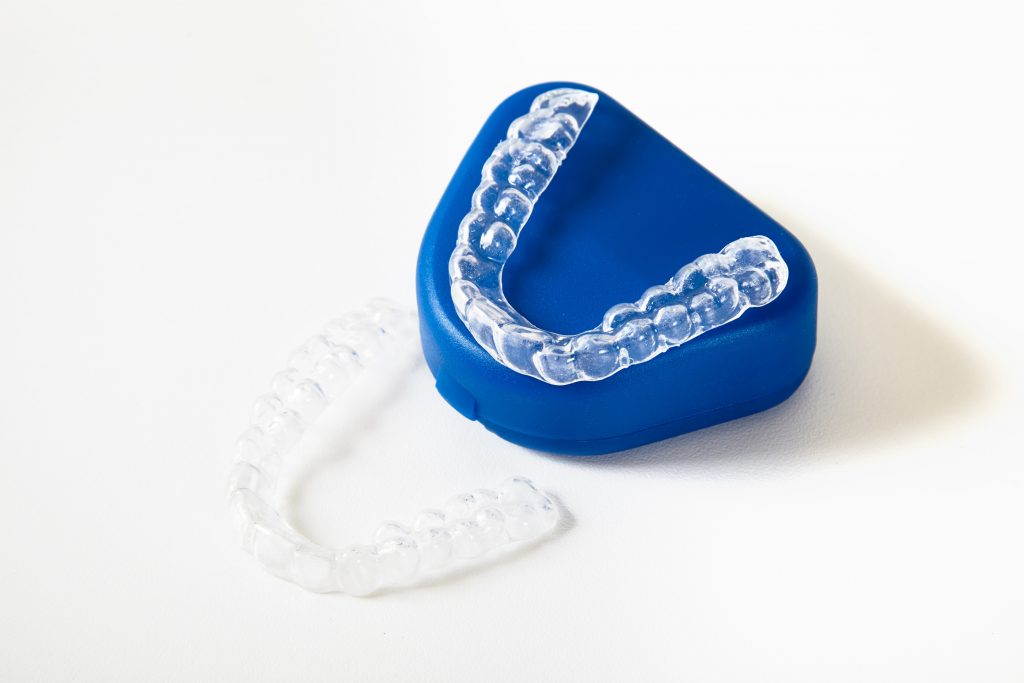

An occlusal guard, also known as a night guard, is a dental device designed to protect your teeth from bruxism—the habitual grinding or clenching of teeth, often occurring during sleep. This condition can lead to various dental and health issues.
Effects of Bruxism
- Tooth Wear: Grinding can wear down tooth enamel, increasing the risk of sensitivity and cavities.
- Jaw Pain: Clenching and grinding cause tension in the jaw muscles, potentially leading to temporomandibular joint (TMJ) disorders.
- Headaches: The excessive force generated by bruxism can contribute to headaches, especially upon waking.
- Disrupted Sleep: The discomfort caused by bruxism can interfere with restful sleep, leading to fatigue and related health issues.
What is Bruxism?
Bruxism refers to the involuntary or habitual grinding, clenching, or gnashing of teeth. It can happen both during the day (awake bruxism) and at night while sleeping (sleep bruxism). While occasional teeth grinding may not cause significant harm, persistent or chronic bruxism can result in various dental and health issues.
Symptoms of Bruxism
- Audible grinding or clenching during sleep
- Worn, flattened, or chipped teeth
- Increased tooth sensitivity
- Jaw pain, especially in the morning
- Frequent headaches, particularly near the temples
- Facial pain, affecting muscles around the jaw
Using and Caring for Your Occlusal Guard
A custom-fitted occlusal guard is usually worn at night to shield your teeth from the damaging effects of grinding. Your dentist will provide detailed instructions on its proper use.
Care Tips
- Gently insert the guard over your teeth without applying excessive force.
- Clean it thoroughly with warm water, mild soap, and a soft toothbrush before and after each use.
- Store the guard in a ventilated container to keep it dry and sanitary.
- By using an occlusal guard, you can prevent the long-term damage caused by bruxism and protect your dental health.









